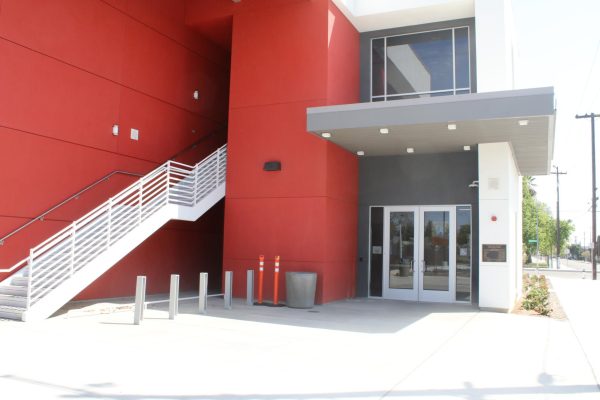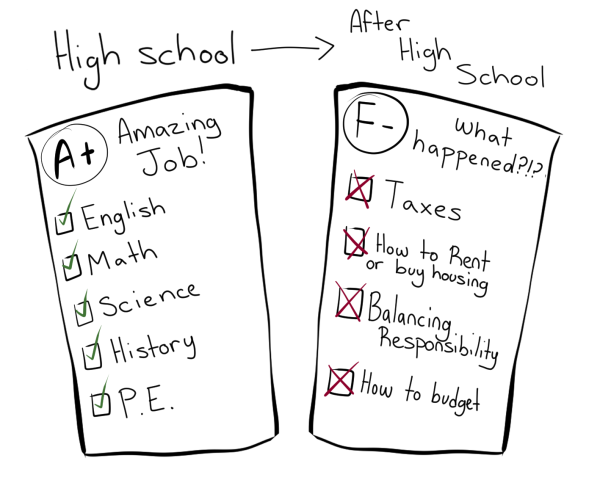To College, or Not to College
Attending college has been the ideal route for young individuals in the U.S. for decades.
Many parents’ dream is for their children to succeed in their education to earn a degree and a career from that degree.
However, college is just not for everyone. Others might seek employment entirely on their own, without the educational knowledge that comes with a degree.
As for the people who aspire to have a career that requires a college degree, of course it’s important to earn that higher education.
According to the Pew Research Center, 94% of parents of children that are 17 or younger expect their children to attend college.
Parents are responsible for the overwhelming pressure felt by students to get their academically talented children to succeed in their college education.
According to the John Hopkins Center for Talented Youth, there has been great concern around the pressure that parents create which may cause performance anxiety.
This is the problem that has been created in the country—earning a college degree has practically become a requirement in American households, despite the fact that only 32% of people in the U.S. between the ages of 45 to 64 have college degrees themselves according to Wikipedia.
Not everyone aspires to be in a career that demands a degree. In fact according to the Hechinger Report, there is a one in five chance that college students will drop out.
There are vocational schools or classes that are unrelated to actually earning a college degree, but rather earning the experience of a career like being an EMT, plumber or construction work.
Here are the pros and cons of earning your college degree:
Pros According to Pros & Cons of Current Issues:
- College graduates are more likely to earn a larger income. The earnings of a college graduate ranges from 176% to 236% compared to those that only graduate high school.
- There are becoming an increasing amount of jobs requiring college degrees. Back in the 1970s, there were around 72% of non-college-required jobs available compared to 2017 having only 34% of non-college-required jobs.
- College graduates have a higher chance of maintaining health insurance. There are higher amounts of college graduates eligible to get insurance provided by the employer rather than those who are only high school graduates.
- College allows students to explore career options. Students are frequently introduced to job fairs, internships, volunteer opportunities and counseling to guide their way toward a better career.
- College graduates often find more satisfaction in their jobs. According to EDSmart, college degree holders feel passionate about their careers rather than just a job to pay the bills.
- Non-college graduates are increasingly struggling financially. The economic rise has taken a toll on those who have a non-college-degree job.
Cons According to Pro & Cons Current Issues:
- Student loan debt has caused a severe struggle for college graduates. In May 2018, around 14 million college graduates owed $1.5 trillion in student debt. This debt could affect aspects of their lives such as negatively affecting credit score and jeopardizing future employment.
- There are lots of college graduates that aren’t in a career related to their college degree. There are about 1 in 3 college graduates in careers that require only a high school diploma or less in 2012.
- There are many Americans that have been able to succeed without college degrees. Countless amounts of successful people have not completed college or never attended with jobs such as widely successful computer software companies, CEOs of popular companies, chefs and entrepreneurs.
- College doesn’t necessarily help to improve your intelligence, at least not for everyone. Like mentioned before, college is just not for everyone. About 36% of people have proven to not show any gained critical thinking skills, according to Vitanna.
- College classes can become very time consuming. Those who are financially struggling or are their head of household may not have the time to make college classes a priority due to working to support themselves and their families.
- College degrees do not guarantee a job. With majors that are more competitive than others, their career choice is a big “if”. Demanding careers such as nursing or STEM majors are often more difficult to succeed at.
Moral of the story is that college is not the utmost importance to having a successful career in your future.
The pressure of attending college is alive and well in the U.S., but there are always options outside of an education that could also be beneficial for you.





